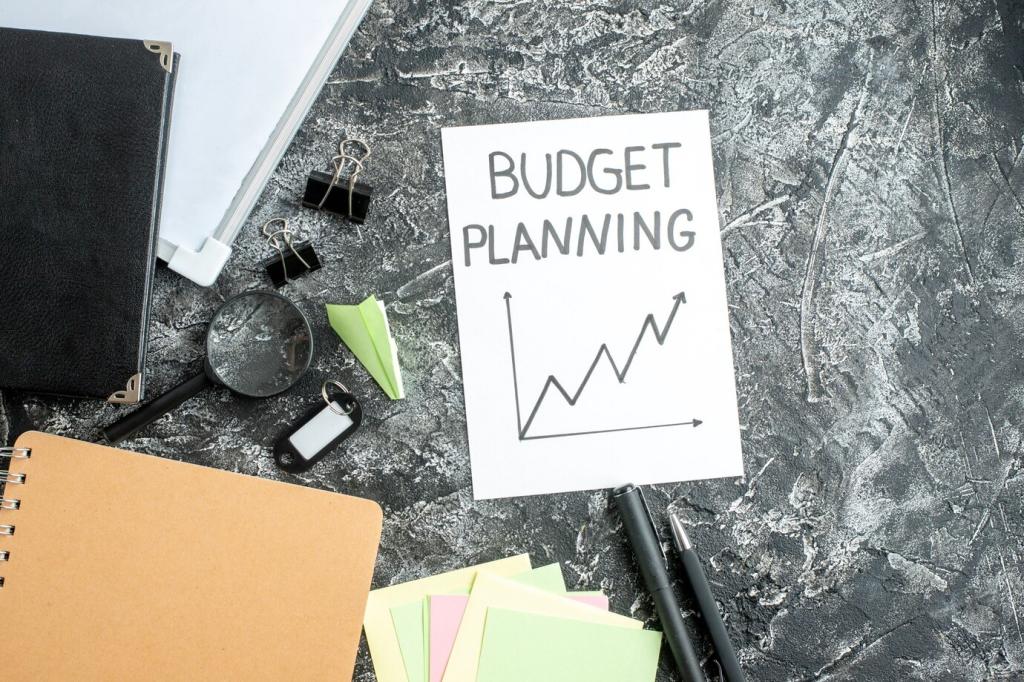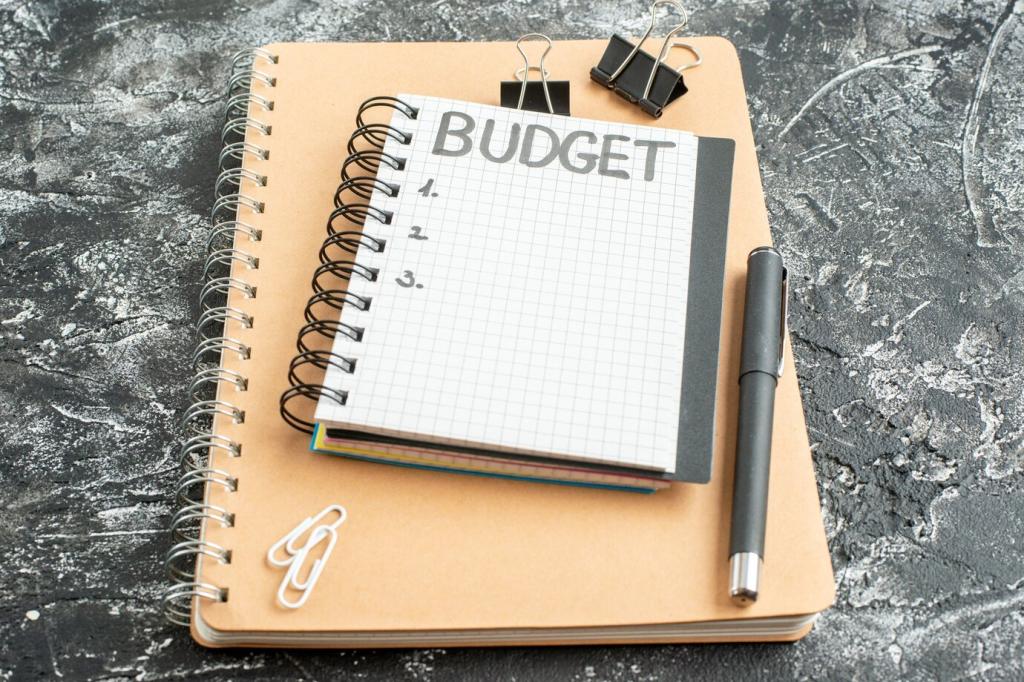Beginner's Guide to Financial Planning: Start Smart, Feel Confident
Start with Your Why: Goals That Guide Every Decision
Write three lists: next 12 months, three to five years, and ten-plus years. Be specific with amounts, dates, and reasons, then rank priorities. Share one goal in the comments to inspire another beginner today.

Build a Practical Budget You Can Keep
Zero-based gives precision, 50/30/20 offers simplicity, and envelopes build awareness. Pick one, test it for two full cycles, then adjust. Tell us which method clicked, what felt hard, and what you will tweak next.
Build a Practical Budget You Can Keep
Link accounts to a trusted app or use a simple two-column spreadsheet. Categorize essentials, goals, and fun. Review weekly for ten minutes. Tiny rituals beat heroic marathons. What is your Friday money check-in routine?
Build a Practical Budget You Can Keep
Birthdays, car tags, holidays, and insurance premiums repeat every year. Divide each cost by twelve and auto-save monthly. Future you will thank present you. Share one annual expense you are smoothing out this year.



Debt Strategy 101: Clear Balances, Keep Confidence
01
Snowball builds momentum by clearing small balances first. Avalanche saves more interest by attacking highest rates. Choose the approach you will persist with. Declare your pick and start date in the comments for accountability.
02
Pay on time, every time. Keep utilization under thirty percent, avoid unnecessary new accounts, and review credit reports annually for errors. Ask about any confusing term—we will decode the jargon together in plain language.
03
Call lenders to request lower rates, hardship plans, or fee waivers. Consider refinancing only if total costs drop and terms stay flexible. Share one script line you will try this week; we will refine it together.
Protect What You Build: Insurance and Safety Nets
Start with essentials, skip the extras
Consider term life if someone depends on your income, health coverage, renters or homeowners, and disability insurance. Avoid overpriced add-ons. What coverage gap concerns you most? Ask, and we will explore beginner options.
Beneficiaries and a simple document hub
Update beneficiaries, store key documents securely, and use a password manager. Create a shared In Case of Emergency file to reduce stress. Comment if you want our checklist template in the next newsletter.
Fraud prevention and digital hygiene
Freeze your credit, enable two-factor authentication, and use unique passwords. Review statements monthly for unusual activity. Share one protective habit you will adopt this week so others can copy and stay safe.


Taxes Made Understandable for Beginners
Pre-tax, Roth, and HSA contributions can reduce taxes and build wealth. Learn eligibility and annual limits early in the year. Ask a question about your situation; we will cover common beginner cases thoughtfully.
Taxes Made Understandable for Beginners
Review withholding after raises or job changes. Side hustlers may owe quarterly estimates, so set calendar reminders now. What income form confuses you most? Post it below and we will tackle it together.
Schedule transfers right after payday for savings, investments, and debt. Consistency compounds faster than perfect optimization. Tell us what you will automate by Friday, and the community will cheer your first step.

